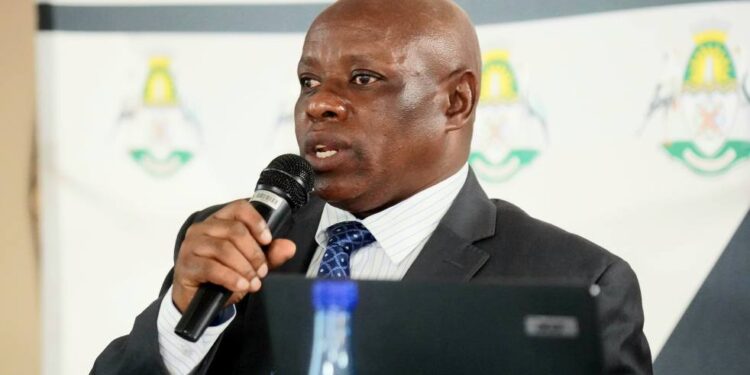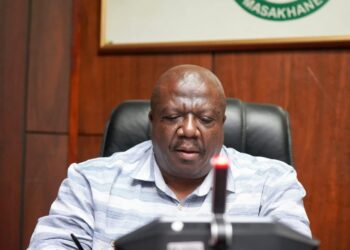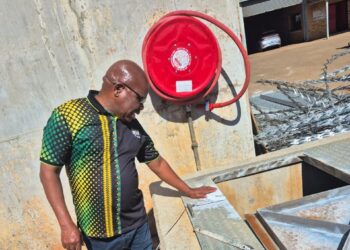MIDDELBURG – Nkangala District Municipality has reaffirmed its commitment to service delivery and local economic transformation through the District Development Model (DDM), a collaborative initiative co-chaired by Deputy Minister of Water and Sanitation David Mahlobo, Mpumalanga MEC of Department of Public Works, Roads and Transport, Thulasizwe Thomo, and Nkangala Executive Mayor Cllr Thomas Ngwenya on June 19, 2025.

The latest DDM engagement focused on strengthening water security, driving economic development, upgrading critical infrastructure, and implementing governance reforms throughout the district.
A key resolution taken during the session was to reposition the district’s role in managing bulk water supply and infrastructure. Nkangala District Municipality will now take a more central role in ensuring that water services are efficiently aligned with the supply and demand of all local municipalities under its jurisdiction.
Deputy Minister Mahlobo, a DDM Champion deployed in Nkangala, highlighted the district’s ongoing water quality challenges. He cited deteriorating water infrastructure and pollution from mining activities as major contributors. Mahlobo emphasised the urgency of addressing these issues, noting that Mpumalanga’s water reliability index currently stands at 44.4%, while Nkangala’s is significantly lower at 25.5%. He stressed that raising water reliability to above 90% is a critical target.
Mahlobo further highlighted the importance of aligning Nkangala’s One Plan with national development goals, and called for more frequent DDM meetings to monitor and evaluate progress on implementation.
In a further strategic directive, the District has instructed the Trans African Concessions (TRAC) to align with the region’s socio-economic transformation goals. This includes giving preference to local suppliers, particularly those owned by historically disadvantaged individuals, for procurement related to the N4 corridor. The directive also applies to SANRAL, relevant national and provincial departments, and local municipalities operating in the area.
The session also included a presentation from the Department of Small Business Development (DSBD), which shared plans to improve food safety standards and enhance support for township spaza shops. According to the department, 52 business regulation officers have been contracted for six months, with each assigned to a district or metro, and nine assistant directors appointed to supervise them at provincial level.
To bolster township retail infrastructure, the DSBD, together with the Department of Trade, Industry and Competition (DTIC), has introduced a R500 million Community Convenience Shops and Services Fund. The fund—supported by R150 million contributions from both departments—aims to assist spaza shops and township-based convenience stores. It will offer financial aid for refurbishments, enable bulk buying through wholesale aggregation, and provide non-financial support such as skills training, regulatory compliance, and business development.
The District Development Model remains a key mechanism for integrated planning and coordination across all spheres of government, aimed at promoting inclusive and sustainable development.
























